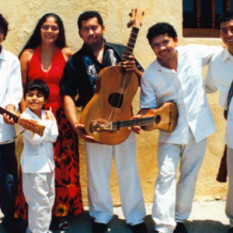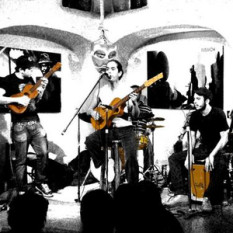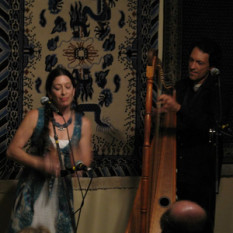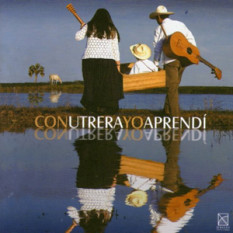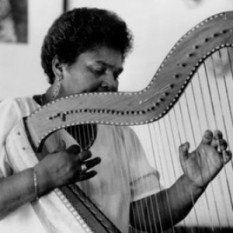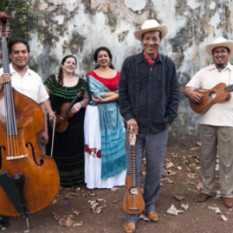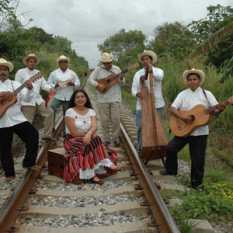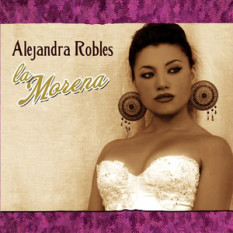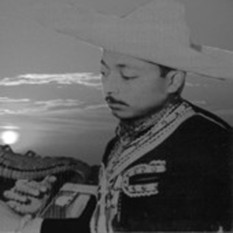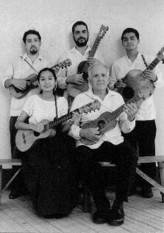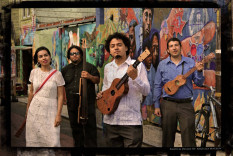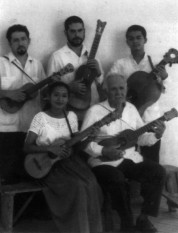Son Jarocho is a traditional musical style of Veracruz, a Mexican state along the Gulf of Mexico. It evolved over the last two and a half centuries along the coastal portions of southern Tamaulipas state and Veracruz state, hence the term jarocho, a colloquial term for people or things from the port city of Veracruz. It represents a fusion of indigenous (primarily Huastecan), Spanish, and African musical elements, reflecting the population which evolved in the region from Spanish colonial times. Lyrics include humorous verses and subjects such as love, nature, sailors, and cattle breeding that still reflect life in colonial and 19th century Mexico. Verses are often shared with the wider Mexican and Hispanic Caribbean repertoire and some have even been borrowed from famous works by writers of the Spanish "Siglo de Oro". It is usually performed by an ensemble of musicians and instruments which collectively are termed a "conjunto jarocho".
The instruments most commonly associated with Son Jarocho are the jarana, a small guitar-like instrument used to provide a harmonic base, with strings arranged in a variety of configurations; the requinto jarocho, another small guitar-like instrument plucked with a long pick traditionally made from cow-horn, usually tuned to a higher pitch and with a four or five thick nylon strings; the harp, and sometimes a minor complement of percussion instruments such as pandero, cajón and quijada (an instrument made of a donkey or horse jawbone). Son Jarocho is often played only on jaranas and sung in a style in which several singers exchange improvised verses called décimas, often with humorous or offensive content. The most widely known son jarocho is "La Bamba", which has been popularized through the version by Ritchie Valens and the American movie of the same name. .

